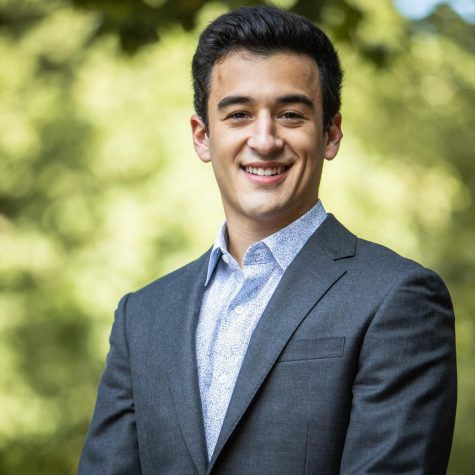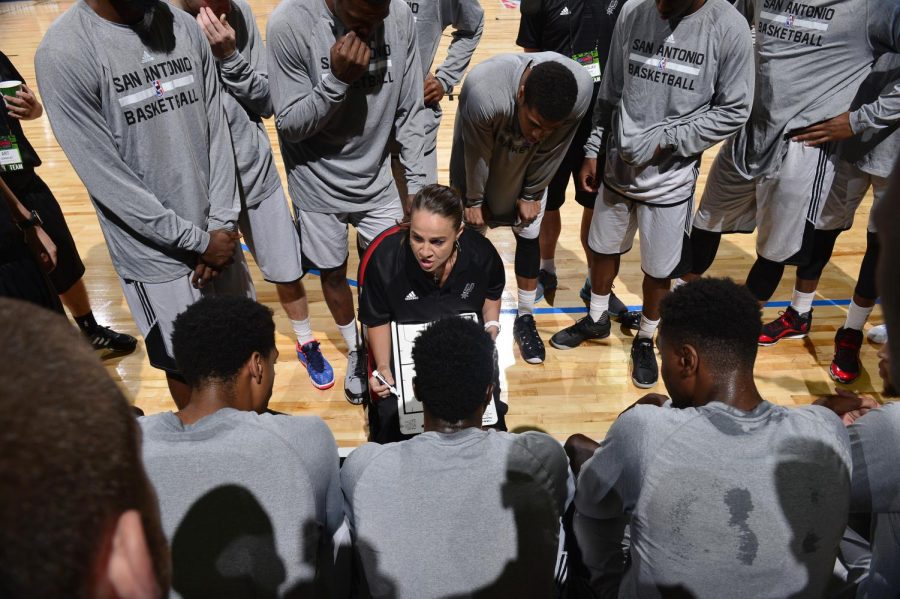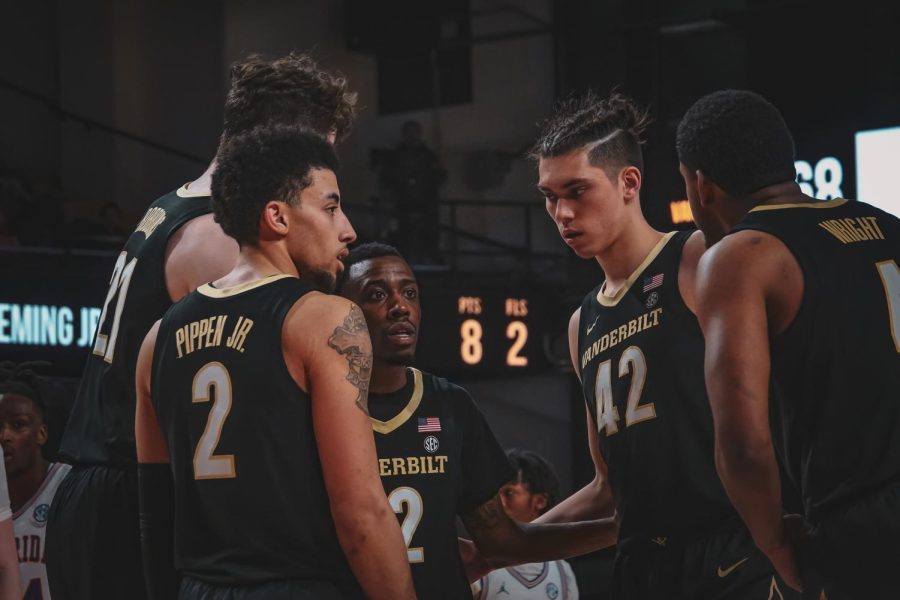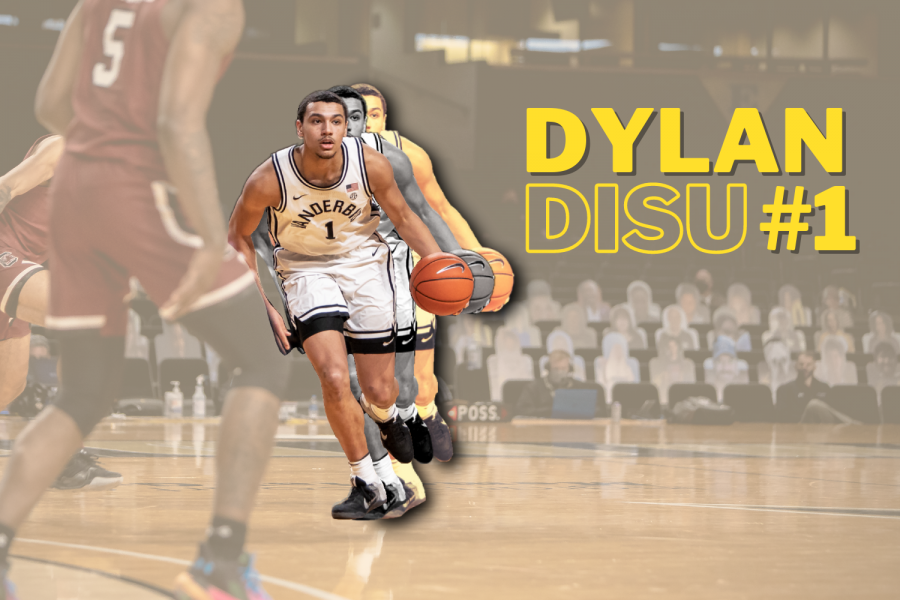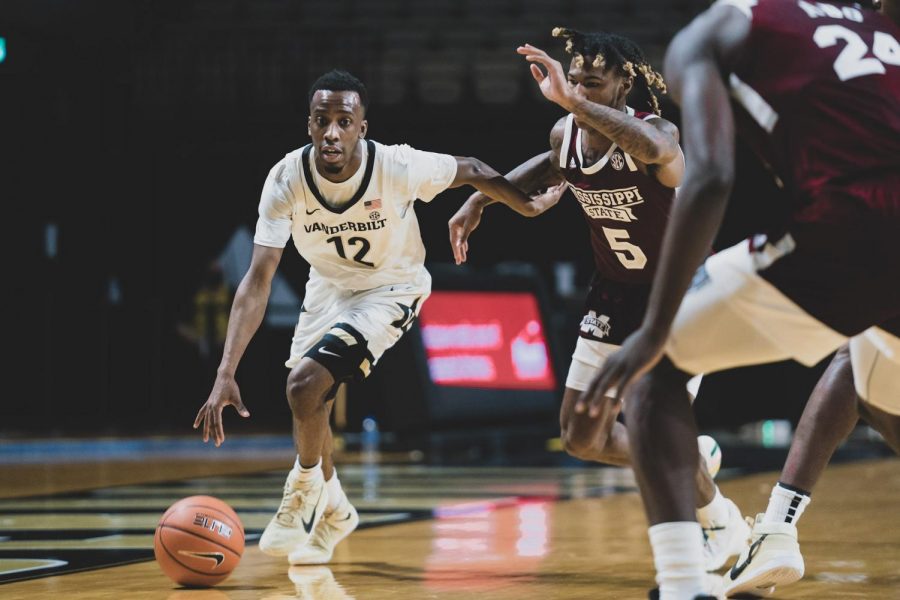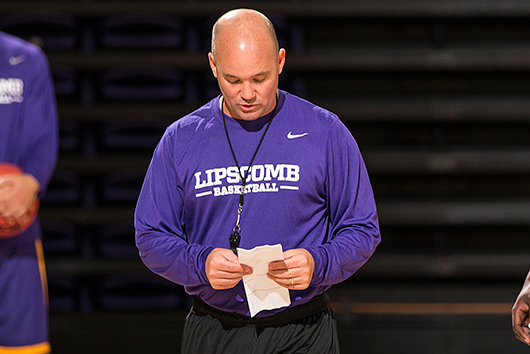
After Vanderbilt basketball’s abysmal season saw them go 0-19 in SEC play, Malcolm Turner was faced with a decision: should he fire head coach Bryce Drew, thus making a statement in his first decision as athletic director, or should he let the Drew era last at least another season?
On Friday morning, just over a week after the season came to its long-awaited end, Turner released the news that Vanderbilt has decided to move on from Drew. This decision came amidst the first round of March Madness, yet the news still sent a vast array of reactions across the college basketball realm. Throughout widespread negativity, Commodore faithful has remained positive. There is, however, one question on their minds: who’s next?
We’ve compiled an extensive list of candidates that could potentially be considered for the position. While some are more realistic than others, each of the following individuals have proven their abilities. They have the résumé to take over what used to be a competitive SEC program, and hopefully, Turner’s coach of choice can start bringing back Memorial Magic.
John Thompson III, USA Men’s National Team (Assistant Coach)
According to a report by Adam Zagoria, Thompson III is currently the “leader” to fill the head coaching vacancy at Vanderbilt. In his storied career as a coach, Thompson has spent a few years coaching at Princeton, and most notably, 13 seasons as the head coach of the Georgetown Hoyas. During his time at Georgetown, Thompson amassed three Big East regular season championships, one Big East tournament championship, and a Big East Coach of the Year award in 2013. Additionally, he’s had plenty of success in March: he took the Hoyas on a trip to the Sweet Sixteen in 2006, and to the Final Four in 2007.
Ironically, his run in 2007 is remembered in Nashville with an accompanying asterisk–that year, the Hoyas faced the Commodores in the Sweet Sixteen. Vanderbilt led by one with just around 10 seconds remaining, when Jeff Green appeared to have gotten away with a travel on the game-winning basket. Thompson’s time at Georgetown may have come to an end in 2017, but he’s remained active in the coaching realm as an assistant for the USA Men’s National Team.
Becky Hammon, San Antonio Spurs (Assistant Coach)
After a fantastic college career playing for the Colorado State Rams, Hammon was slow to make her mark in the WNBA. Roughly three seasons later, she broke out in spectacular fashion and was eventually named to the list of the WNBA’s top-25 players of all time. Later in her career, while Hammon was amidst year year-long rehabilitation process for a torn ACL, she was frequently invited to San Antonio Spurs practices to contribute her thoughts, opinions, and pieces of advice.
These tidbits did not go unnoticed by the winningest active coach in the NBA, Gregg Popovich, who eventually hired Hammon as an assistant in 2014. During her time with the San Antonio Spurs, Hammon has coached her way up the ladder to a high-level assistant job. She’s now spent years learning from the best in Popovich, while proving her success independently: after being named the first-ever female head coach in the NBA’s Summer League, Hammon helped the Spurs win the Summer League.
For more on why Becky Hammon is, without a doubt, the top candidate in my eyes, read my piece.
Nate Oats, University at Buffalo
You probably should’ve heard of Oats after his thirteenth-seeded Buffalo Bulls thrashed the heavily favored, fourth seed Arizona Wildcats in the first round of the NCAA Tournament last year. If that 21 point victory wasn’t enough, surely you know him now, as his sixth-seeded Bulls are once again making noise in the tournament.
Oats has proven to be a terrific Division I coach in his time at the University of Buffalo, but like many candidates on this list, he appears to be a long-shot for the Commodores. First off, Turner would have to wait at least another day to begin talks. Oats’ well-coached Bulls team is dancing for at least another day after their first-round tournament win against Arizona State on Friday. Secondly, and perhaps more importantly, Oats signed a significant five-year extension with Buffalo just over two weeks ago. His extension is slated to kick-in starting next season, but who’s to say he’s unwilling to leave for the right price? After all, with head coaching vacancies at Vanderbilt, Alabama, UCLA, Texas A&M, UNLV, and many more schools, it only seems right for Oats to hear them out.
Mick Cronin, University of Cincinnati
Cronin may be an appealing candidate to many Commodore fans, especially after his work with Cincinnati’s Fifth Third Arena. Much to the pleasure of Cincinnati followers, Cronin’s annual success and consistent efforts for renovations ultimately forced the schools hand in an $87 million renovation of the arena. A narrative about a coach about encouraging the school to spend big money on athletics–you hear that, Commodores?
Unlike Oats’ Bulls, Cronin’s Cincinnati Bearcats were eliminated from the NCAA Tournament in the first round. Cronin could be fair game, but it may take even more to convince the Bearcats’ head coach of thirteen years to leave. Cincinnati has made the tournament a whopping nine straight times, and the AAC is only getting better: in 2019, their four tournament teams were the most of any non power-five conference and even outnumbered a former powerhouse in the Pac-12. With a number of coaching awards in his tenure, Cronin has done more than exceed expectations after a slow start at Cincy. It’s hard to overlook that Cronin is an alum of Cincinnati himself, which could make it tough to leave. Then again, Vanderbilt was able to lure Drew out of his father’s Valparaiso program.
Eric Musselman, University of Nevada
At just 54 years old, Musselman could be labeled a journeyman of sorts. He started his career as the general manager of the Rapid City Thrillers, a semi-pro franchise that his father had coached to success, before eventually stepping in as head coach at age 23. Even while coaching the Thrillers, he took a brief leave of absence to serve as an assistant for the Minnesota Timberwolves. Ultimately, 24 of Musselman’s players were called up from the Thrillers to NBA franchises–a number large enough to award him a full-time gig as an assistant for the Magic in 1998. He served as an assistant for two years in Orlando, before doing the same with the Atlanta Hawks. Eventually, four years into his NBA coaching career, he received his first head coaching job with the Golden State Warriors.
If you haven’t recognized the trend here, that also lasted just two years. Three G-League head coaching jobs (we’ll revisit this) and three college coaching jobs later, he found himself in Nevada in 2015. He inherited a Wolf Pack program with a 9-22 record, just one loss fewer than the 2018-19 Commodores, and in four years has turned them into a regular tournament team.
Remember that whole G-League part? Malcolm Turner was the former G-League president. Don’t be surprised if Musselman’s name is thrown into contention.
Billy Kennedy, Texas A&M (Former)
Talk about setting a precedent. For a while, it seemed unclear whether Vanderbilt would part ways with Drew after the Commodores finished with a painful 0-19 record in the SEC. Meanwhile, Texas A&M (who handled the Commodores with ease in the first round of the SEC Tournament) fired Billy Kennedy after seven seasons–two of which he made it all the way to the Sweet Sixteen.
Kennedy has held various coaching positions at thirteen different schools since 1985. That’s about as much collegiate experience as you can ask for in your head coach, but it seems rather unlikely that Vanderbilt gives due consideration to a candidate who was last seen coaching in the SEC a month ago. Surely, it wouldn’t be easy to recruit if you’re coaching for a “lesser” SEC school after being fired by your last.
Casey Alexander, Lipscomb University
Newsflash: Vanderbilt was the worst Division-I program in the state of Tennessee this year. Yes, worse than Lipscomb.
For those who haven’t paid much attention to Bisons, they have experienced some superb improvements since Casey Alexander took the reins in 2013. The team moved from a 15-15 record in his first season to a 25-7 record this past season, and in the process, they’ve picked up some hardware: Lipscomb took home the Atlantic Sun Tournament Championship in 2018, awarding them an automatic bid to the NCAA Tournament. This year, they finished atop the Atlantic Sun Conference in the regular season. Their loss to Liberty in the finals of the A-Sun tournament prevented them from dancing in March, but the Bisons still picked up an NIT bid, while Coach Alexander was named Atlantic Sun Coach of the Year.
The Commodores have a recent history of reaching into mid-major programs to find a head coaching candidate, with Kevin Stallings and Bryce Drew serving as evidence. Alexander should absolutely be considered for the job, and at just 46 years old, he could be looking to pave his own path into the power-five. Also, note how he’s completely transformed the Lipscomb program in six years. This upheaval was both gradual yet effective, and drew parallels to another in-state name: Belmont. Can’t help but imagine how much Alexander learned in his 16 seasons as an assistant for Rick Byrd and the Belmont Bruins.
Johnny Dawkins, University of Central Florida
Dawkins has done it all over the course of his basketball career. As a player, he had a terrific four years at Duke University–two time first-team all-ACC, two time consensus first-team All-American, and to top it off, he won the Naismith Player of the Year award in his senior season. He was selected with the tenth overall pick of the 1986 NBA Draft, and like many successful collegiate coaches, Dawkins managed to put together a nice NBA career. He played for nine years, averaging as many as 15.8 points per game.
Surely, his NBA experiences coupled with 10 years of coaching alongside Coach Krzyzewski prepared him to take over his own program. In 2008, his coaching career brought him to Stanford University (again, notice the trend: Duke, Stanford…Vanderbilt?), where he won two NIT championships in three appearances, and made a run to the NCAA Sweet Sixteen in 2014. At UCF, it took Dawkins just three years to take a struggling program to places it hadn’t seen in years: an NIT Semifinals appearance, a March Madness Tournament bid, and a ranking in the AP Poll for the first time since 2010-2011.
Shaka Smart, University of Texas at Austin
Once again, it should come as no surprise if Smart makes his way into contention. It might be difficult for Vanderbilt to match his reported annual salary at Texas of over $3 million, but Smart is at a bit of a crossroads: he coached the Longhorns to the first round of the NCAA Tournament in 2016 and in 2018, but finished with a mediocre 11-22 record in 2017, and a 16-16 record this season. Inconsistency of this nature serves sufficient reason for the University of Texas athletic department to at least give Smart’s job a closer look, as he’s amassed a 66-66 record in four years. At 41 years young, Shaka Smart has a lot of coaching ahead of him, and it would make sense to start anew–not to mention, in the ever-so-talented SEC.
Sure, he hasn’t had the success that he envisioned since arriving at Texas, but his previous six-year tenure at Virginia Commonwealth is what immediately jumps out on paper. He began with a CBI championship in 2009, before making a leap of faith the next season. In 2010-11, his VCU Rams may have only tallied one more win than the previous season, but an at-large bid is all Smart needed to work some magic. The 11-seeded VCU Rams made a Cindarella run to the Final Four, and to date, they remain the only team to start in the First Four of the tournament and make their way all the way to the Final Four. In the next four years, Smart took the Rams to the round of 32 twice, and the round of 64 twice. Smart has proven to be successful while his team is overlooked–that’s precisely what Vanderbilt needs.
Jon Scheyer, Duke University (Associate Head Coach)
This makes sense for so many reasons. Let’s start with the obvious: Scheyer, formerly a four-year player at Duke University, has spent five years at Duke as an assistant, and now an associate head coach. That means four years of playing under, and five years coaching alongside Coach Mike Krzyzewski. It’s hard to draw up a better coaching foundation than serving alongside Coach K. Scheyer’s description may draw parallels to Dawkins’ involvement with the Blue Devils, but really, Scheyer’s involvement goes above and beyond: Scheyer is rumored to have a significant impact in Duke’s recruiting process, which is known for wheeling in nationally-acclaimed recruits at an unprecedented rate.
Of course, Duke is still dancing, and all signs point to them staying in the tournament for quite some time. If/when Duke is eliminated from the tournament, Malcolm Turner should give Scheyer his best shot. That said, it’s hard to picture a scenario where Turner can reach into a successful program’s coaching staff–let alone the best program in the country.
Bonus Candidate: Martin Bahar, University of Southern California (Director of Scouting)
Who?
Martin Bahar, Vanderbilt University Class of 2006. A double major in Communication Studies and Spanish and a four-year manager for the Vanderbilt Commodores men’s basketball program. He has since worked his way through the coaching ranks, traveling from Vanderbilt to Fairfield University, Princeton, and then Georgetown, before finally being named the director of scouting for the University of Southern California.
Is it likely that Bahar is named head coach? Probably not. But it’s worth noting that nobody knows this program as well as someone formerly involved in it. Perhaps Turner will put Bahar’s abilities to the test with an interview. After all, Bahar has served many assistant coaching jobs, and is surely looking to move up the ranks once more (H/T to Vanderbilt Hustler alumnus Josh Cooper for the tip).


